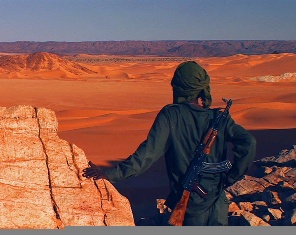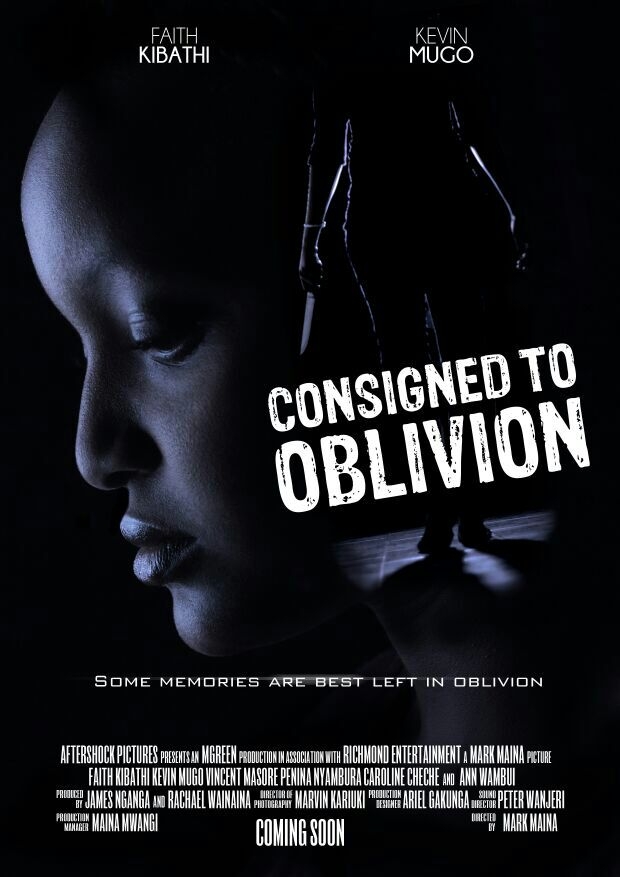By Kevin Kriedemann
Published January 12, 2014
 Expelled from Libya. Hijacked by al-Qaeda in Mali and Niger. That is the story of the Tuaregs of the sahara Desert that has been captured in a three-part documentary series by award-winning filmmaker May Welsh and is being aired on Al-Jazeera English since January 9, 2014.
Expelled from Libya. Hijacked by al-Qaeda in Mali and Niger. That is the story of the Tuaregs of the sahara Desert that has been captured in a three-part documentary series by award-winning filmmaker May Welsh and is being aired on Al-Jazeera English since January 9, 2014.
The series, ORPHANS OF THE SAHARA, captures the heart-breaking circumstances of life for the Sahara’s Tuareg, one of the most isolated and impoverished people in the world.
In recent years, the Tuareg have been cut off from journalists, tourists, and aid workers by the presence of al-Qaeda.
The three films provide rare and exclusive access and insight to the Tuareg separatist struggle inside their homeland, and to their rivals Al-Qaeda in the Islamic Maghreb.
“The Tuareg story is one of an extremely impoverished people whose land harbours the largest energy reserves on the African continent, and who have been fighting for various forms of self-determination for 50 years,†says May Welsh.
ORPHANS OF THE SAHARA: RETURN, the first film in the three-part series, premiered on January 9, 2014 on Al Jazeera English at 20:00 GMT. Thousands of Muammar Gaddafi’s Tuareg mercenaries flee Libya to return to crushing poverty, hunger and drought in their Saharan homeland, much of which is spread across northern Niger and northern Mali. Barely able to feed their children amidst total state neglect, and with few other skills in Mali, the men launch a rebellion to found their own country, while in Niger they risk their lives to return to Libya.
Amamatou Bint Tigzali, mother of a Tuareg fighter, says, “The story of my son is a man chased by poverty. Hunger that you can see if you look at the women and children around us. He was forced to travel to Libya, so he went. It wasn’t a choice.”
The second film of the series is ORPHANS OF THE SAHARA: REBELLION.In it, the Tuareg uprising sweeps northern Mali but al-Qaeda emerges from the Sahara to compete with them to control the desert, as impoverished and illiterate Tuareg youth provide the foot soldiers of both separatism and jihad. Al-Qaeda’s presence sets off world alarm, but the Tuareg say the group has been funded and encouraged for years to peel recruits away from secular Tuareg separatism – the real threat to nation-states of the region.
Talha, Emir of Al Furqan Brigade, al-Qaeda in the Islamic Maghreb, in Timbuktu, says, “There are many weak people – people who have nothing. And you can reach them, by spreading the word of God or by helping and supporting them.”
The third film is ORPHANS OF THE SAHARA: EXILE. The Tuareg of Niger and Mali try to gain control over the natural wealth that lies beneath their ancestral land;the uranium upon which France has been heavily dependent for 40 years. But al-Qaeda hijacks their victory and France intervenes militarily to protect its post-colonial interests in the region. Defeated and chased into exile, the Tuareg continue to demand a country from refugee camps.
 May Welsh directed Bahrain: Shouting in the Dark that won the Best International Television and the Grand Prize at the Robert F.Kennedy Journalism Awards, The Amnesty International Media Award, a Gold Nymphe (Nymphe d’Or) for Best Documentary at the Montecarlo Television Festival, the Foreign Press Association Documentary of the Year award in London, the George Polk Award for Excellence in Journalism and the Scripps Howard Jack R. Howard Award for Television Reporting.
May Welsh directed Bahrain: Shouting in the Dark that won the Best International Television and the Grand Prize at the Robert F.Kennedy Journalism Awards, The Amnesty International Media Award, a Gold Nymphe (Nymphe d’Or) for Best Documentary at the Montecarlo Television Festival, the Foreign Press Association Documentary of the Year award in London, the George Polk Award for Excellence in Journalism and the Scripps Howard Jack R. Howard Award for Television Reporting.





